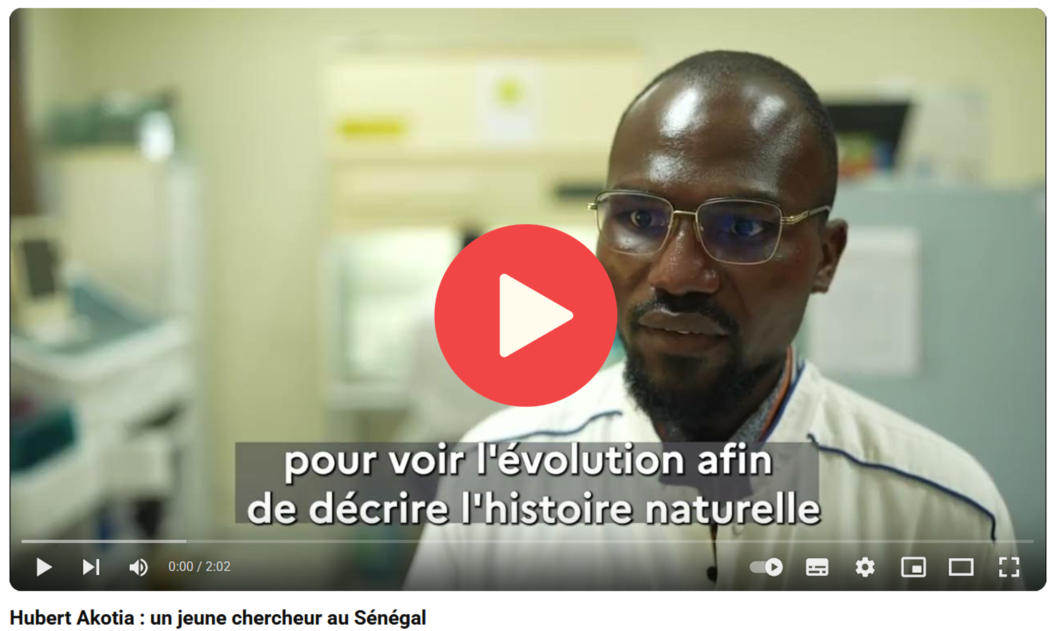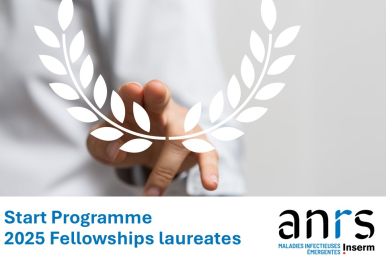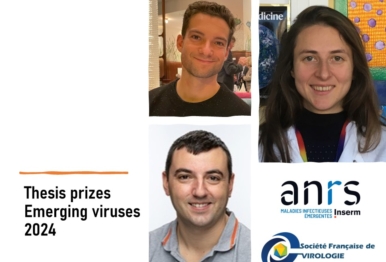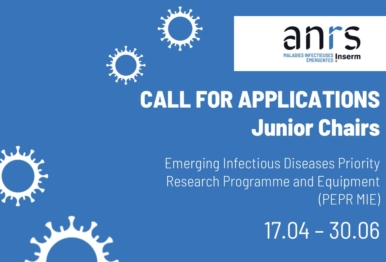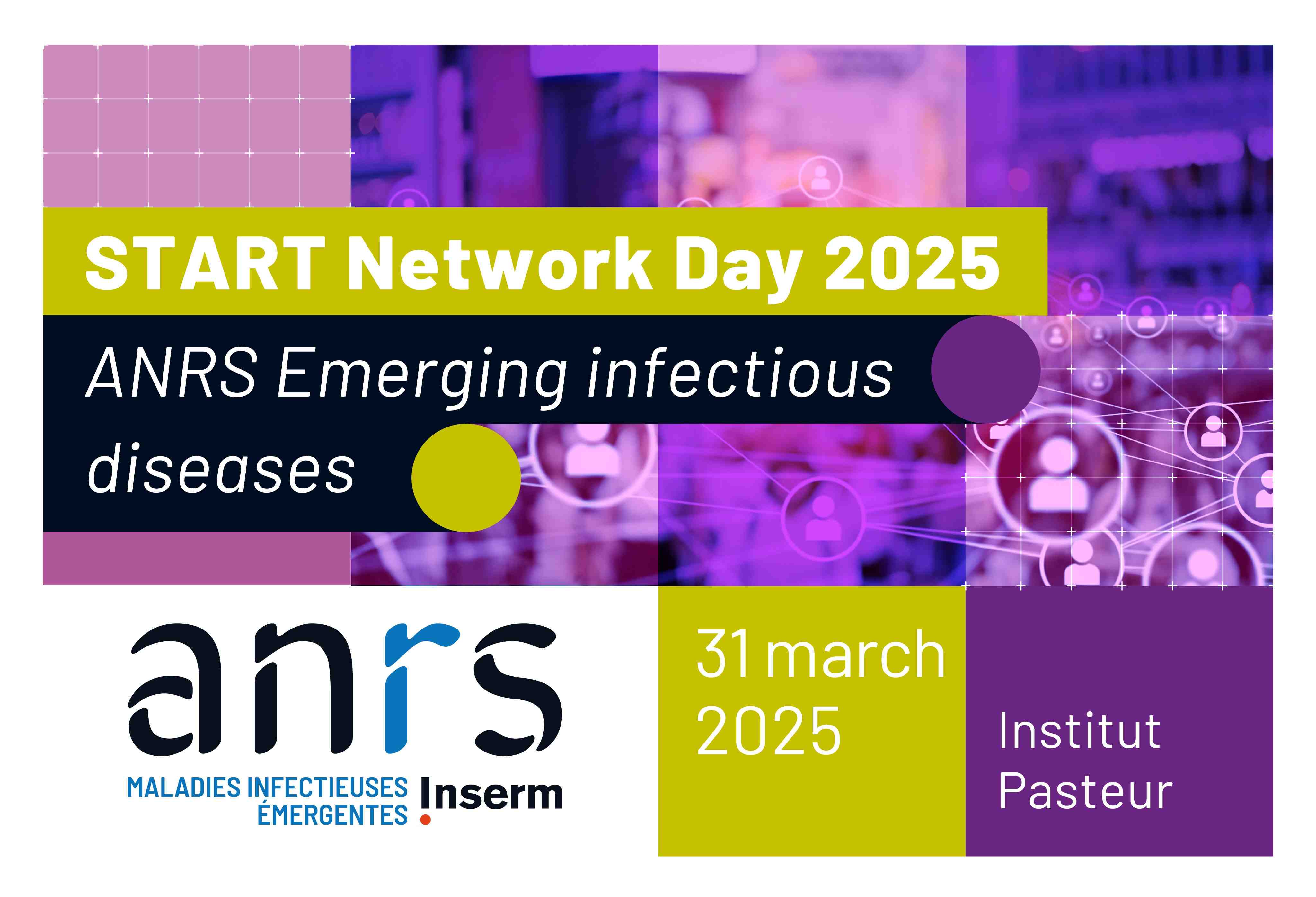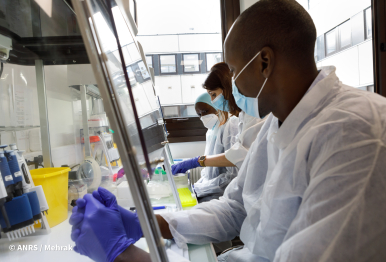
ANRS Emerging infectious diseases Start programme
The aim of the Start programme is to support the next generation of scientific researchers in the agency's research areas.
Last updated on 16 February 2026
Start programme : supporting the next generation of scientists
In 2024, the ANRS MIE launched the Start programme to support junior researchers (particularly Masters students, PhD students and post-doctoral fellows) working on the agency’s research topics (HIV/AIDS, viral hepatitis, tuberculosis, STIs, emerging infectious diseases).
Start programme: training, research, network
This support has been defined as a strategic priority (Objective 7 of the ANRS MIE 2023-2027 Strategic Framework and is based on three areas of support:
- support for training: ensuring high-quality training for junior scientists;
- support for research: encouraging the launch of careers in research and encouraging the development of innovative research work;
- support for structuring the scientific community: facilitating, connecting and disseminating knowledge.
Support for training: the Fellowships funding scheme
The Fellowships funding scheme aims to fund grants for junior scientists wishing to train for a career in research.
Call for applications ‘Master’s Grants – International Network’
This call for applications is specifically aimed at junior scientists from LMICs (Low and Middle Income Countries) and is intended to enable the successful candidates to follow a Master I, Master II or Specialised Master’s degree and to open up opportunities to pursue a career in research in close collaboration with the partners of the ANRS MIE International Network (partner sites and PRISME – Platforms for International Global Health Research).
Discover the 2025 editionCall for applications ‘Doctoral, postdoctoral and fourth year of PhD grants – Infectious Emerging Diseases’ grants
This call is aimed at junior scientists who wish to complete a PhD thesis, a postdoctoral project or a fourth year of PhD.
Discover the 2026 edition Laureates 2025The ‘Françoise Barré-Sinoussi, Nobel Prize winner in Medicine’ excellence grant
Each year, the ANRS MIE funds an excellence grant, the ‘Françoise Barré-Sinoussi, Nobel Prize winner in Medicine’ grant, to enable French-speaking healthcare professionals from sub-Saharan Africa or South-East Asia to join the Master’s degree in ‘Global Health in the South – Global Health’ at Isped/University of Bordeaux, and to conduct research in their country on ANRS MIE research topics.
Since 2023, this programme has been supplemented by an ancillary grant designed to finance the ‘Methods and Practice in Epidemiology’ University Diploma (DU) offered by Isped. This grant is aimed at candidates wishing to consolidate their pre-requisites in epidemiology and statistics in order to apply for a Master’s degree.
Research support: funding for research projects led by junior researchers
From 2025, the ANRS MIE launches dedicated calls for projects and applications to help launch the careers of junior researchers.
Several types of projects may be supported: exploratory projects, aimed at obtaining initial research results, full research projects and junior research chairs.
Call for applications « PEPR MIE Junior Chairs »
As part of the Emerging Infectious Diseases Priority Research Programme and Equipment (PEPR MIE), measure 2 of the National acceleration strategy for ‘Emerging infectious diseases and nuclear, radiological, biological and chemical threats’ supported by France 2030, the ANRS MIE is launching its first call for applications for Junior Chairs.
The aim of this call is to stimulate the development of innovative research within the scope of the MIE PEPR:
- Axis 1 – Accelerating the acquisition of knowledge on MIEs;
- Axis 2 – Organising and developing new treatments, vaccines and other prevention, diagnostic and surveillance tools for MIEs;
- Axis 3 – Enabling policies and society to cope with epidemic crises.
Support for structuring the scientific community and disseminating knowledge
Start Day
Organised prior to the annual ANRS MIE Scientific Days, the Start Day aims to bring together and unite the next generation of scientists around the agency’s research topics.
For junior researchers, this event is an opportunity for professional development, networking and exchanges between peers and with senior researchers, encouraging the sharing of knowledge and experience and the possibility of future collaborations.
Discover the Start Day 2025Start network
The Start network is a cross-disciplinary network aimed at junior scientists supported by the Start programme or other funding tools, as well as anyone interested in the ANRS MIE research topics.
Its aim is to help build a scientific community by encouraging exchanges and collaboration between different disciplines and research themes.
The network is based on the involvement of junior researchers, who are invited to share their ideas and needs to enrich and co-create the actions put in place.
Two thematic networks that complement the Start network also exist:
- The AMYB network (ANRS MIE Young Basic research community network), founded in 2021 on the initiative of four junior researchers funded by the ANRS MIE. Its aim is to bring together junior scientists supported by the agency and working on basic research on HIV, viral hepatitis, STIs, tuberculosis and emerging infectious diseases.
- The network of young social science researchers on HIV/AIDS, founded in 2008 and financially supported by the agency, aims to share information and know-how, encourage networking and provide support in responding to calls for projects, as well as promoting scientific exchanges on issues related to HIV/AIDS and, more recently, other diseases included within the agency’s scope. It supports collective reflection on the political, ethical and operational implications of research work.
PhD Thesis prizes
The coordinated actions (CA) of the ANRS MIE help to support junior researchers: in particular, the Société française de virologie (SFV) and the agency have joined forces to award PhD thesis prizes to junior scientists whose research work has left its mark on the field through its high quality, originality and innovative nature.
These prizes cover different areas of virology.
- The ‘Dominique Dormont’ prizes are awarded for fundamental and translational research on HIV. The winners are selected by the AC 41 of the ANRS MIE.
- Prizes for basic research on viral hepatitis, the winners of which are selected by the AC 42.
- Prizes for basic research on emerging and re-emerging viruses, selected jointly by the SFV and the ANRS MIE.
Dedicated workshops and training
As part of the Start programme, training activities will be offered to network members to reinforce certain cross-disciplinary skills that are essential for launching their careers.
Taking the form of workshops and dedicated events, the activities will cover a range of cross-disciplinary scientific skills (communicating about your project, writing a scientific article, etc.) and funding research skills (writing a project proposal, writing a narrative CV, etc.).

